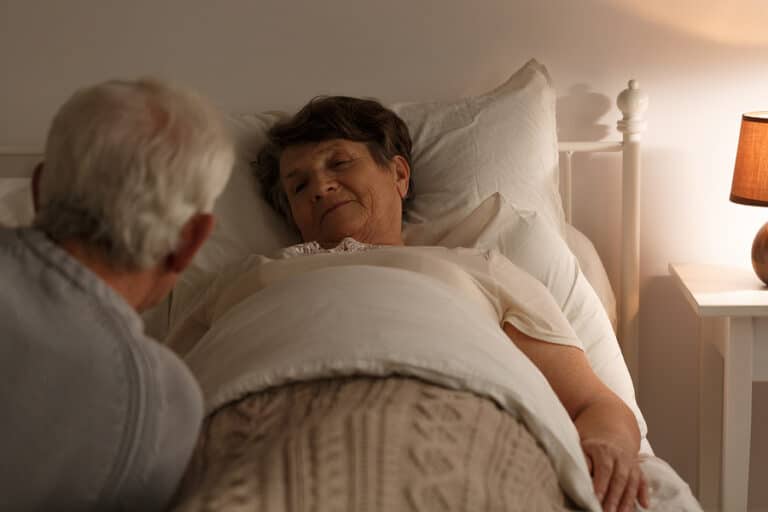If your aging relative is confined to a wheelchair or their bed, the health care team may have warned you to watch for bed sores. Hopefully, you’ve avoided them so far. Knowing more about what bed sores are and what causes them could help you to keep avoiding them in the future.
What Is a Bed Sore?

The older adult’s doctor might also refer to bed sores as pressure ulcers or decubitus ulcers. They are injuries that affect the skin and the tissues directly under the skin. They usually happen on bony areas of the body that aren’t covered by as much fatty tissue or on parts that receive the most pressure. Some common areas where pressure sores occur are:
• Tailbone.
• Buttocks.
• Shoulder blades.
• Spine.
• Back of the arms and legs.
• Back or sides of the head.
• Heels.
• Ankles.
Where your aging relative might get pressure sores depends on what areas of their body come into contact with other surfaces most. For example, if the senior is confined to bed, they might get sores on their head where it rests on the pillow. If they are on a wheelchair, the backs of their arms and legs might get sores from resting against the arms of the chair and the leg rests.
Some signs that an older adult may be developing a bed sore are:
• Skin changes, like change in color texture.
• Skin that feels warm or cool to the touch.
• Swelling.
• Pus drainage.
• Areas that feel tender to the senior when they are touched.
How Do They Happen?
Bed sores are caused when pressure placed on the skin restricts blood flow to the area. They are common in people with limited mobility because the person remains in the same position for a long time. Friction and shear also play a role in causing bed sores. Friction happens when skin rubs against a surface, such as a sheet when the older adult is moved on the bed. Shear is caused by the skin and the surface it is touching moving in different directions. Shear can happen when the older adult slides down in bed or in their wheelchair.
Can They Be Prevented?
Fortunately, bed sores can be prevented, and home care can help. One way to prevent bed sores is to help the older adult change positions frequently. A home care provider can assist them to move whether the senior is in bed or in a wheelchair. Keeping the skin in good condition can also help. The doctor may recommend using a thick cream or ointment to protect the skin against bedsores that can occur when skin is damp due to sweat or incontinence. A home care provider can apply the cream or ointment as needed. Should a bed sore occur, a home care provider can help to keep it clean and bandaged to prevent infection or worsening of the sore.
If you or an aging loved one are considering hiring Home Care in Greenville, SC, contact Heart of the Carolinas Home Care at 864-991-3116. Providing Home Care Services in Greenville, Simpsonville, Greer, Anderson, Spartanburg, Mauldin, Seneca, Laurens, Charleston, Columbia and the surrounding areas.
Sources
https://dailycaring.com/bed-sores-causes-stages-early-detection/
https://www.mayoclinic.org/diseases-conditions/bed-sores/symptoms-causes/syc-20355893
https://www.medicalnewstoday.com/articles/173972.php
- Is it Possible to Prevent Family Caregiver Burnout? - April 25, 2025
- Home Care Assistance Helps Seniors After A Fall - April 9, 2025
- How Home Care Supports Seniors Who Are Hard of Hearing - March 28, 2025

